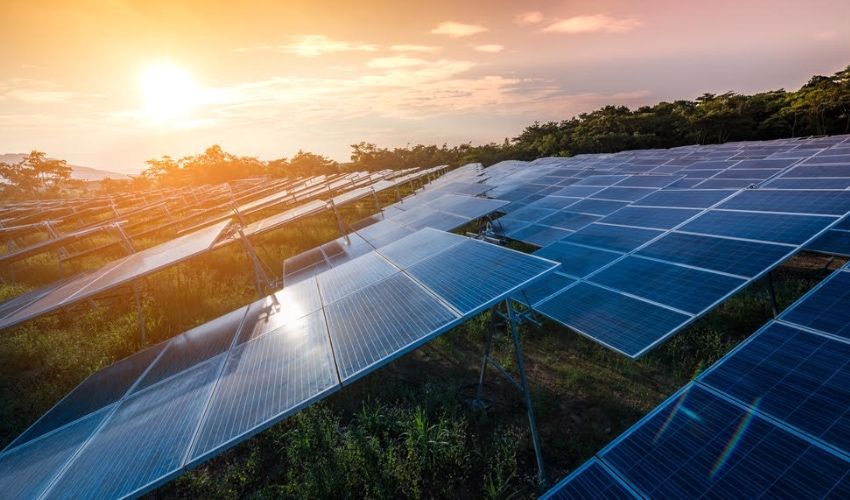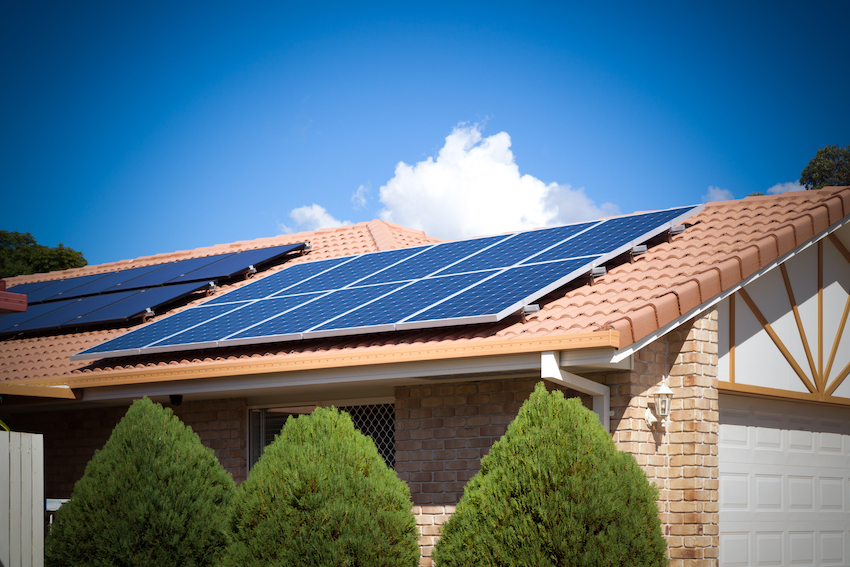


Jersey Electricity is currently looking at ways to encourage more islanders to put solar panels on their roofs - but the company says its key focus is on building commercial and ground-based arrays.
The company, which is majority owned by taxpayers, has bought back electricity for more than a decade from households that have solar panels.
However, it says its own focus on installing panels is not on private homes but renting space on large commercial roofs, such as sheds and warehouses.
It also wants to build a number of ground-based arrays in open spaces.
Even if all roofs in Jersey were covered in solar panels, it would only generate around a quarter of the energy the island needs, and only during the day.
Last month, the company announced plans to build its first ground-mounted solar farm on 48 vergées of land south of Rue du Moulin à Vent in St. Clement, which – if approved – will generate four megawatts of power, which is enough to power 400 homes a year.
Its aim is to build several arrays around the island to generate 11m kilowatts a year, enough to power more than 1,500 Jersey homes.

Pictured: JE says it is happy to buy energy from homeowners but it is not focussing on installing its own residential panels.
Jersey Electricity CEO Chris Ambler said: “We are looking if we can create a proposition that would encourage customers to do their own developments. We have been collecting residential solar for 15 years and have had a buy-back tariff, which is presently 7p a unit, which is second only to Octopus Energy in the UK.
“So, by UK standards, it is quite a generous buy-back tariff, and we also waive the standby charge, which allows customers to access the grid when there isn’t enough solar energy.
“More islanders are doing their own developments and we are happy to connect them if they’re done safely. However, at the moment, our focus is on the bigger developments because we can generate more meaningful amounts of power and get to a cost-point which is more sensible.”
So far, these include fitting panels to Jersey Dairy, Woodside Farm, the Power Station and the car shelters outside the Powerhouse and B&Q.
Another roof array is planned for the Albert Bartlett potato processing plant off Trinity Hill, which in generating 600 kilowatts will be the biggest project yet.
Mr Ambler said: “Solar is the most economically viable of the renewable technologies, if done at scale. The challenge is, to do it at scale, you need a lot of land.

Pictured: Jersey Electricity CEO Chris Ambler.
“And it is worth reminding ourselves that solar PV doesn’t generate any power at night, and the amount of solar energy produced on a winter’s day is around a tenth of that of a typical summer’s day.
“So, there is huge variation in generation between winter and summer, and if you look at when customers need energy, it is typically in the winter and when it’s dark.
“A company like JE needs to make sure that we deliver power when the sun isn’t shining.”
Our strategy is to deliver the roof and ground-based projects to drive the cost down to make them more attractive.
“We are trying to do the bigger ones first because they are more viable. It is still ostensibly more expensive than importing from France, but the strategy is to try to find ways to make them cheaper. Of course, we would prefer to buy power from locally generated sources than importing from France.”
Although Jersey Electricity is planning to use more solar energy, its main long-term aim is to build an offshore wind farm, which has the potential to generate far more energy.
However, it is unlikely Jersey would completely detach itself from the French grid, which currently supplies almost all of the island’s electricity.
It is this supply, and the price arrangements in JE’s contract with French supplier EdF, which has shielded islanders from the significant energy price rises seen in the UK and Europe since Russia’s invasion of Ukraine six months ago.
Comments
Comments on this story express the views of the commentator only, not Bailiwick Publishing. We are unable to guarantee the accuracy of any of those comments.